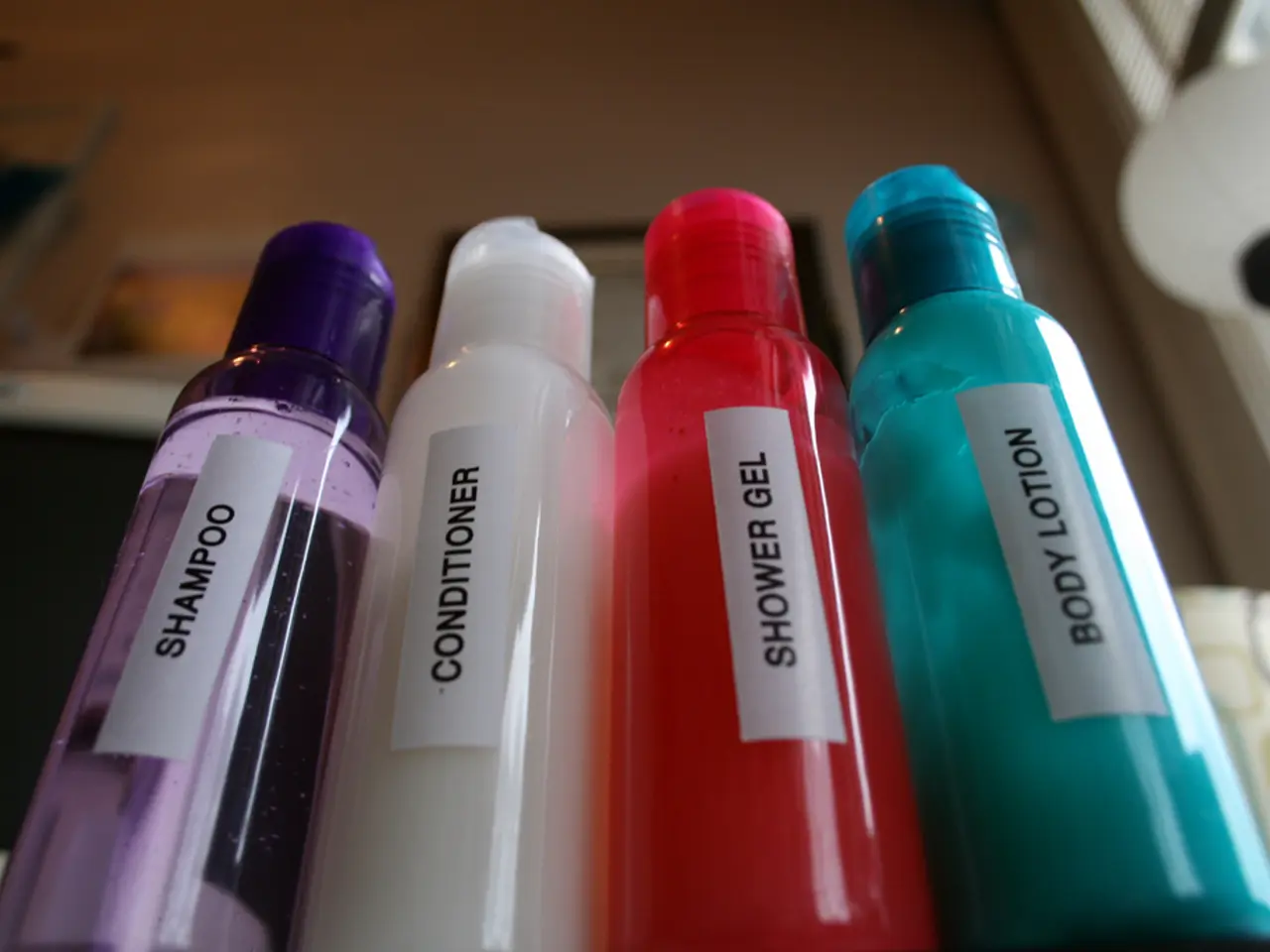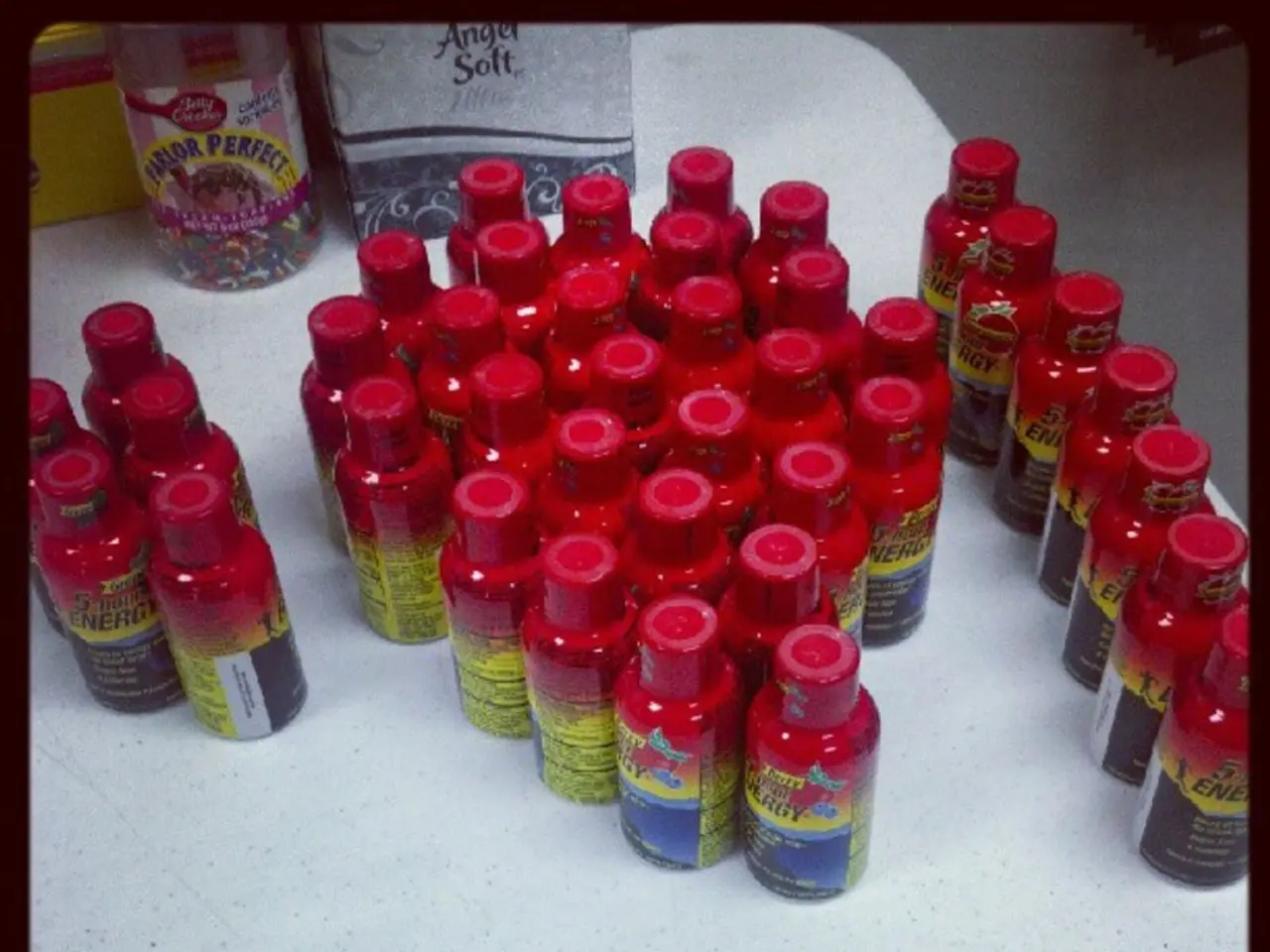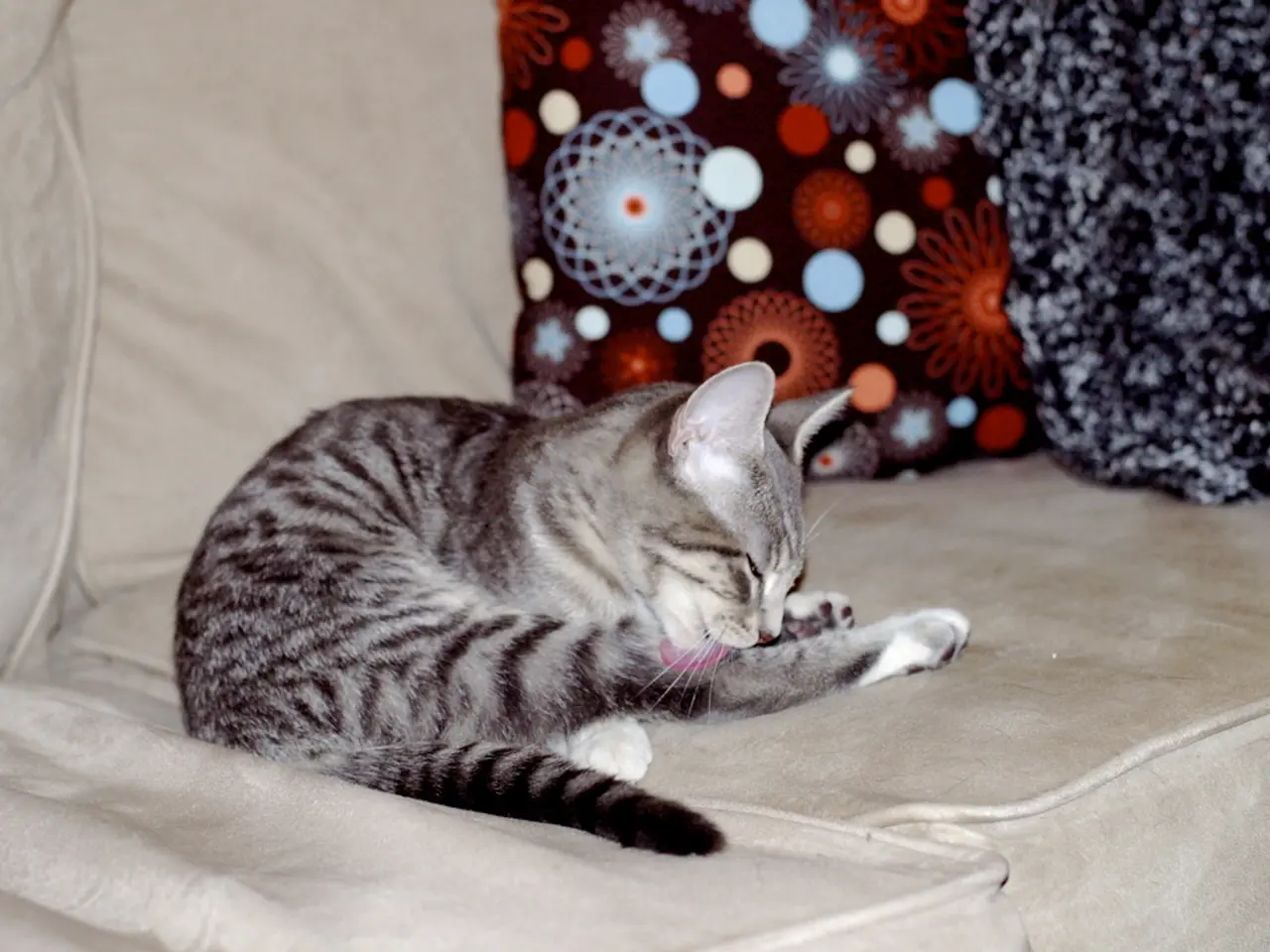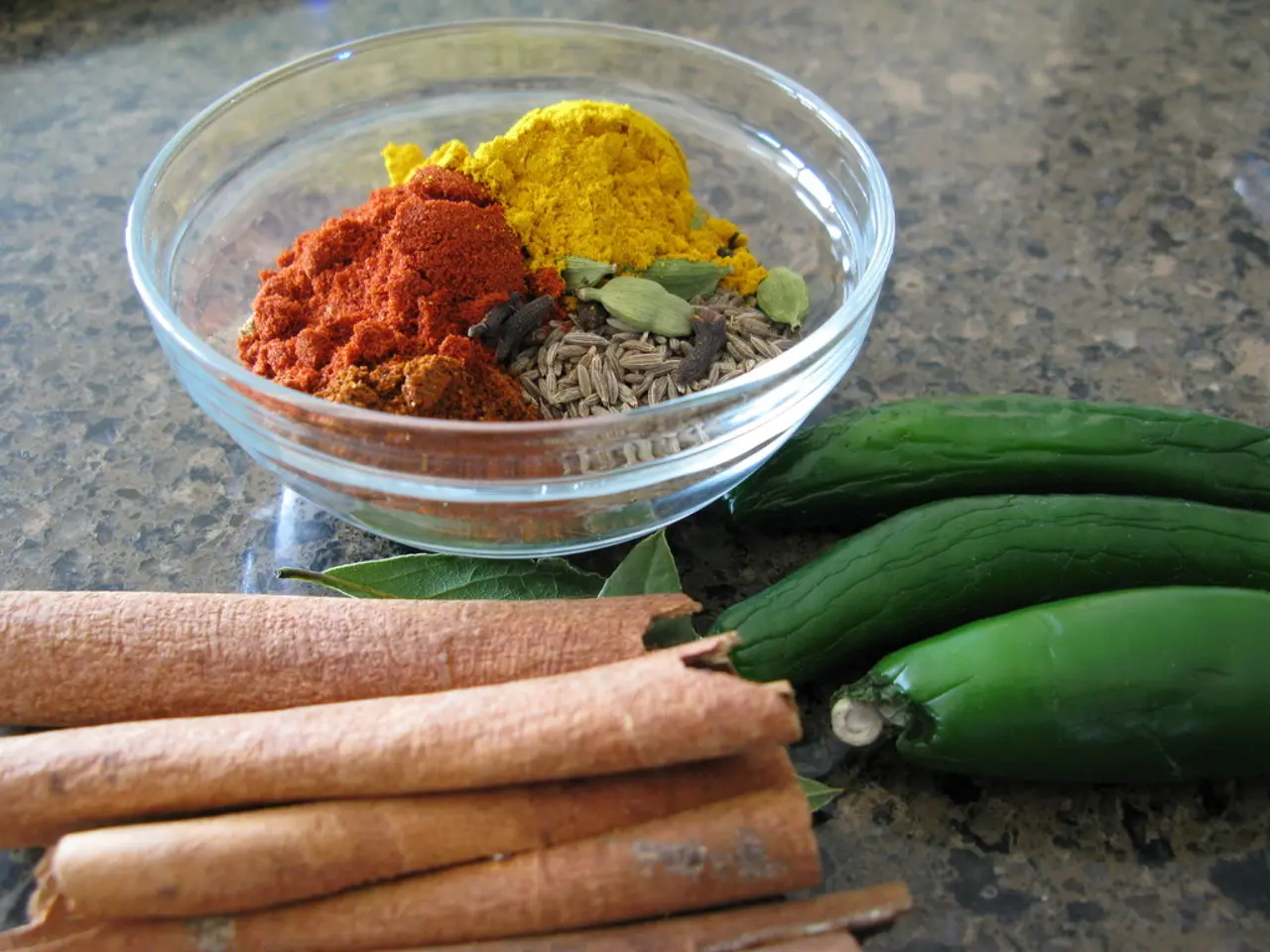Scalp Irritation and Relief Strategies
Dandruff, a common scalp condition that causes flakes of skin and itching, affects many people, particularly during the teenage years and up to midlife. This condition can also manifest in babies as cradle cap, characterized by yellow, greasy, scaly patches on the scalp.
While complications from dandruff are rare, they can include signs of infection, severe dandruff, signs of eczema, psoriasis, or another skin condition, and a very itchy scalp. The frequency of hair washing varies between individuals, with the American Academy of Dermatology advising Black people to shampoo once a week with a dandruff shampoo, while white and Asian people should shampoo daily and use a dandruff shampoo twice a week.
Recent research and innovations in dandruff treatments are focusing on both novel bioactive ingredients and microbiome-targeted approaches, moving beyond traditional shampoos. Some key new solutions under investigation include:
- Leave-on scalp tonics with piroctone olamine and niacinamide: Unilever's CLEAR brand launched the CLEAR Anti Dandruff Scalp Tonic containing piroctone olamine (an antifungal and anti-dandruff agent) combined with 3.5% niacinamide and a hyaluron complex. This tonic aims to reinforce and strengthen the scalp barrier up to four times, soothe itching, neutralize odor, reduce visible flakes, and protect the scalp from environmental stressors.
- Multifunctional bioactive extracts: A new ingredient called DandErase™ offers extended anti-dandruff efficacy along with anti-inflammatory and anti-itch benefits, representing an advanced multifunctional approach to dandruff.
- Microbiome-focused strategies: Cutting-edge studies reveal that scalp dysbiosis—imbalanced microbial communities involving bacteria like Staphylococcus aureus and fungi—plays a key role in dandruff. These insights pave the way for treatments that restore ecological balance in the scalp microbiome rather than merely targeting fungi, aiming for longer-lasting and more targeted solutions.
- Natural and marine-algae based remedies: Research highlights the potential of natural ingredients rich in bioactives, such as tea tree oil, aloe vera, and specifically marine algae extracts, to inhibit fungal overgrowth and inflammation. Algae-based solutions include fucoidan-rich masks, spirulina rinses, algae oil massages, and polysaccharide-rich leave-in serums, which moisturize the scalp, reduce flakiness, balance oil secretion, and support scalp health.
These developments indicate a trend toward holistic scalp health by combining antifungal action, anti-inflammatory effects, skin barrier reinforcement, and microbiome modulation to overcome dandruff more effectively and sustainably.
It's important to note that while dietary factors such as zinc, B vitamins, and gamma linolenic acid may help with dandruff if a person has a deficiency, there is not enough research evidence to prove their effectiveness. Additionally, certain hair care products can irritate the scalp and may cause dandruff.
Dandruff is a medical condition, and a doctor will recommend suitable treatment for any underlying causes. Eczema, ringworm, and contact dermatitis are skin conditions that can cause flaking skin on the scalp. If a specific shampoo becomes less effective over time, a person may want to switch to a different shampoo with another ingredient.
Research into new solutions for dandruff is ongoing, with infusions of tea and the addition of llama antibodies to shampoo being potential strategies. Dandruff shampoo is available online and for treating dandruff in the beard area.
In summary, the future of dandruff treatments looks promising with the development of leave-on tonics, multifunctional bioactives, microbiome-balancing therapies, and natural formulations using marine algae and herbal ingredients. These approaches represent significant advances beyond traditional dandruff shampoos currently widely used.
- The American Academy of Dermatology advises different hair washing frequencies for different ethnicities, with Black people advised to shampoo once a week, while white and Asian people should shampoo daily and use a dandruff shampoo twice a week.
- Unilever's CLEAR brand has launched a scalp tonic with piroctone olamine, niacinamide, and a hyaluron complex, aiming to reduce visible flakes, soothe itching, neutralize odor, and protect the scalp from environmental stressors.
- A new ingredient called DandErase™ offers extended anti-dandruff efficacy alongside anti-inflammatory and anti-itch benefits, paving the way for advanced, multifunctional dandruff solutions.
- Research highlights the potential of natural ingredients like tea tree oil, aloe vera, and marine algae extracts in inhibiting fungal overgrowth and inflammation, making them promising candidates for dandruff treatments.
- Eczema, ringworm, and contact dermatitis are skin conditions that can cause flaking skin on the scalp, and a doctor will recommend suitable treatment for any underlying causes.
- The future of dandruff treatments looks promising with the development of leave-on tonics, multifunctional bioactives, microbiome-balancing therapies, and natural formulations using marine algae and herbal ingredients, representing significant advances beyond traditional dandruff shampoos.




